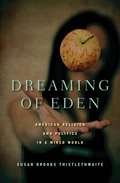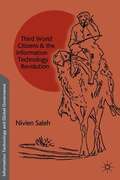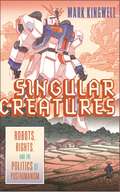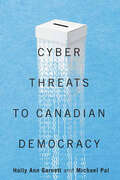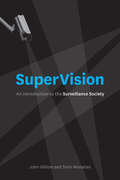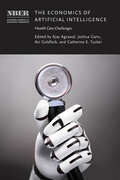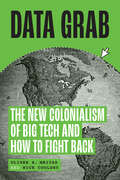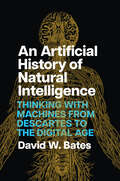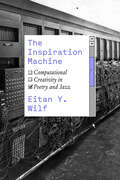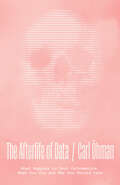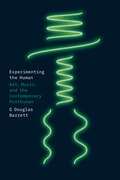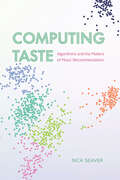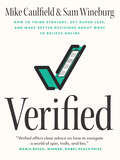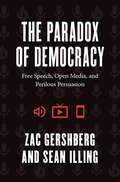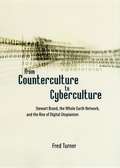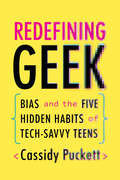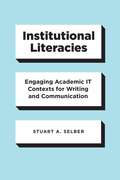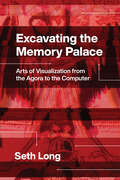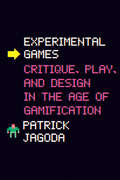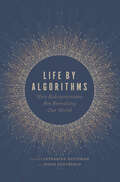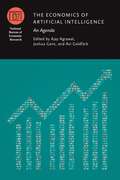- Table View
- List View
Dreaming of Eden: American Religion and Politics in a Wired World
by Susan Brooks ThistlethwaiteIn the Garden of Eden, Adam and Eve were tempted to take a bite out of an apple that promised them the "knowledge of good and evil. " Today, a shiny apple with a bite out of it is the symbol of Apple Computers. The age of the Internet has speeded up human knowledge, and it also provides even more temptation to know more than may be good for us. Americans have been right at the forefront of the digital revolution, and we have felt its unsettling effects in both our religions and our politics. Susan Brooks Thistlethwaite argues that we long to return to the innocence of the Garden of Eden and not be faced with countless digital choices. But returning to the innocence of Eden is dangerous in this modern age and, instead, we can become wiser about the wired world.
Third World Citizens and the Information Technology Revolution
by Nivien SalehThis book challenges the widely-held view that the information technology (IT) revolution has empowered people in the Third World. Tracing the making of the global IT regime, it shows that governments and corporations of the wealthy countries dominated this process, systematically excluding representatives of low-income countries.
Singular Creatures: Robots, Rights, and the Politics of Posthumanism
by Mark KingwellAnxiety about non-human intelligent machines is a longstanding theme of cultural production and consumption. Examples range from tales of golems and Frankenstein’s monster to the evil overlord scenarios of contemporary film and television franchises: Star Trek, the Alien series, and the Terminator sequence, as well as Her, Black Mirror, Blade Runner, Ex Machina, and many other less mainstream cultural artifacts. The source of this anxiety is clear. Non-human conscious entities may turn out to be superior to any biological form of life, allowing a stride across human ambition in a moment dubbed “the Singularity” by AI insiders. This is the turning point when non-human entities advance and reproduce in a manner that surpasses and subjugates biological forms of intelligent life. Although today’s artificial intelligences fall notably short of this level of sophistication, Mark Kingwell argues that we are already more than human in important ways, and likely to become more so as time goes on. In Singular Creatures Kingwell plumbs the depths of cultural and political meaning in the apparent transition to posthuman life. Our immersion in technology, now comprehensive to the point of invisibility, has altered forever what it means to be alive. The politics of posthumanism flow directly from our own situation, at once dependent on technology and afraid of its effects on current and future experiences.More than a century after playwright Karel Čapek coined the word robot – rooted in the Czech robota, meaning “servitude” or “drudgery” – in his 1920 allegory about the alienation of forced labour leading to a violent workers’ revolt, Čapek’s central question continues to haunt us. Can humans and their own creations co-exist in a new cyberflesh world, or is a struggle for superiority inevitable? Singular Creatures is an attempt at sketching the field before any deadly battle is joined.
Cyber-Threats to Canadian Democracy (McGill-Queen's/Brian Mulroney Institute of Government Studies in Leadership, Public Policy, and Governance)
by Holly Ann Garnett and Michael PalFrom the Cambridge Analytica scandal to overloaded internet voting servers to faulty voting machines, the growing relationship between democracy and technology has brought to light the challenges associated with integrating new digital tools into the electoral system. Canadian politics has also felt the impact of this migration online.This timely book presents the first comprehensive study of the various cyber-threats to election integrity across Canadian jurisdictions. Scrutinizing the events of the 2019 federal election, Cyber-Threats to Canadian Democracy examines how new technologies have affected the practice of electoral politics and what we can do to strengthen future Canadian elections. Through the disciplines of political science, law, computer science, engineering, communications, and others, chapters shed light on some of the most contentious issues around technology and electoral integrity. The contributors address current domestic and foreign threats to Canadian elections, evaluate the behaviour of actors ranging from political parties and interest groups to policymakers and election administrators, and assess emerging legal and regulatory responses while anticipating future challenges to the quality of elections in Canada and around the globe.Cyber-Threats to Canadian Democracy helps seed the study of digital technology’s security risks, providing insight into what reforms are needed and evaluating existing legal and policy frameworks in light of these threats.
SuperVision: An Introduction to the Surveillance Society
by John Gilliom Torin MonahanWe live in a surveillance society. Anyone who uses a credit card, cell phone, or even search engines to navigate the Web is being monitored and assessed--and often in ways that are imperceptible to us. The first general introduction to the growing field of surveillance studies, SuperVision uses examples drawn from everyday technologies to show how surveillance is used, who is using it, and how it affects our world Beginning with a look at the activities and technologies that connect most people to the surveillance matrix, from identification cards to GPS devices in our cars to Facebook, John Gilliom and Torin Monahan invite readers to critically explore surveillance as it relates to issues of law, power, freedom, and inequality. Even if you avoid using credit cards and stay off Facebook, they show, going to work or school inevitably embeds you in surveillance relationships. Finally, they discuss the more obvious forms of surveillance, including the security systems used at airports and on city streets, which both epitomize contemporary surveillance and make impossibly grand promises of safety and security. Gilliom and Monahan are among the foremost experts on surveillance and society, and, with SuperVision, they offer an immensely accessible and engaging guide, giving readers the tools to understand and to question how deeply surveillance has been woven into the fabric of our everyday lives.
The Economics of Artificial Intelligence: Health Care Challenges (National Bureau of Economic Research Conference Report)
by Ajay Agrawal, Joshua Gans, Avi Goldfarb, and Catherine E. TuckerA timely investigation of the potential economic effects, both realized and unrealized, of artificial intelligence within the United States healthcare system. In sweeping conversations about the impact of artificial intelligence on many sectors of the economy, healthcare has received relatively little attention. Yet it seems unlikely that an industry that represents nearly one-fifth of the economy could escape the efficiency and cost-driven disruptions of AI. The Economics of Artificial Intelligence: Health Care Challenges brings together contributions from health economists, physicians, philosophers, and scholars in law, public health, and machine learning to identify the primary barriers to entry of AI in the healthcare sector. Across original papers and in wide-ranging responses, the contributors analyze barriers of four types: incentives, management, data availability, and regulation. They also suggest that AI has the potential to improve outcomes and lower costs. Understanding both the benefits of and barriers to AI adoption is essential for designing policies that will affect the evolution of the healthcare system.
Data Grab: The New Colonialism of Big Tech and How to Fight Back
by Ulises A. Mejias Nick CouldryA compelling argument that the extractive practices of today’s tech giants are the continuation of colonialism—and a crucial guide to collective resistance. Large technology companies like Meta, Amazon, and Alphabet have unprecedented access to our daily lives, collecting information when we check our email, count our steps, shop online, and commute to and from work. Current events are concerning—both the changing owners (and names) of billion-dollar tech companies and regulatory concerns about artificial intelligence underscore the sweeping nature of Big Tech’s surveillance and the influence such companies hold over the people who use their apps and platforms. As trusted tech experts Ulises A. Mejias and Nick Couldry show in this eye-opening and convincing book, this vast accumulation of data is not the accidental stockpile of a fast-growing industry. Just as nations stole territories for ill-gotten minerals and crops, wealth, and dominance, tech companies steal personal data important to our lives. It’s only within the framework of colonialism, Mejias and Couldry argue, that we can comprehend the full scope of this heist. Like the land grabs of the past, today’s data grab converts our data into raw material for the generation of corporate profit against our own interests. Like historical colonialism, today’s tech corporations have engineered an extractive form of doing business that builds a new social and economic order, leads to job precarity, and degrades the environment. These methods deepen global inequality, consolidating corporate wealth in the Global North and engineering discriminatory algorithms. Promising convenience, connection, and scientific progress, tech companies enrich themselves by encouraging us to relinquish details about our personal interactions, our taste in movies or music, and even our health and medical records. Do we have any other choice? Data Grab affirms that we do. To defy this new form of colonialism we will need to learn from previous forms of resistance and work together to imagine entirely new ones. Mejias and Couldry share the stories of voters, workers, activists, and marginalized communities who have successfully opposed unscrupulous tech practices. An incisive discussion of the digital media that’s transformed our world, Data Grab is a must-read for anyone concerned about privacy, self-determination, and justice in the internet age.
An Artificial History of Natural Intelligence: Thinking with Machines from Descartes to the Digital Age
by David W. BatesA new history of human intelligence that argues that humans know themselves by knowing their machines. We imagine that we are both in control of and controlled by our bodies—autonomous and yet automatic. This entanglement, according to David W. Bates, emerged in the seventeenth century when humans first built and compared themselves with machines. Reading varied thinkers from Descartes to Kant to Turing, Bates reveals how time and time again technological developments offered new ways to imagine how the body’s automaticity worked alongside the mind’s autonomy. Tracing these evolving lines of thought, An Artificial History of Natural Intelligence offers a new theorization of the human as a being that is dependent on technology and produces itself as an artificial automaton without a natural, outside origin.
The Inspiration Machine: Computational Creativity in Poetry and Jazz
by Eitan Y. WilfExplores how creative digital technologies and artificial intelligence are embedded in culture and society. In The Inspiration Machine, Eitan Y. Wilf explores the transformative potentials that digital technology opens up for creative practice through three ethnographic cases, two with jazz musicians and one with a group of poets. At times dissatisfied with the limitations of human creativity, these artists do not turn to computerized algorithms merely to execute their preconceived ideas. Rather, they approach them as creative partners, delegating to them different degrees of agentive control and artistic decision-making in the hopes of finding inspiration in their output and thereby expanding their own creative horizons. The algorithms these artists develop and use, however, remain rooted in and haunted by the specific social predicaments and human shortfalls that they were intended to overcome. Experiments in the digital thus hold an important lesson: although Wilf’s interlocutors returned from their adventures with computational creativity with modified, novel, and enriched capacities and predilections, they also gained a renewed appreciation for, and at times a desire to re-inhabit, non-digital creativity. In examining the potentials and pitfalls of seemingly autonomous digital technologies in the realm of art, Wilf shows that computational solutions to the real or imagined insufficiencies of human practice are best developed in relation to, rather than away from, the social and cultural contexts that gave rise to those insufficiencies, in the first place.
The Afterlife of Data: What Happens to Your Information When You Die and Why You Should Care
by Carl ÖhmanA short, thought-provoking book about what happens to our online identities after we die. These days, so much of our lives takes place online—but what about our afterlives? Thanks to the digital trails that we leave behind, our identities can now be reconstructed after our death. In fact, AI technology is already enabling us to “interact” with the departed. Sooner than we think, the dead will outnumber the living on Facebook. In this thought-provoking book, Carl Öhman explores the increasingly urgent question of what we should do with all this data and whether our digital afterlives are really our own—and if not, who should have the right to decide what happens to our data. The stakes could hardly be higher. In the next thirty years alone, about two billion people will die. Those of us who remain will inherit the digital remains of an entire generation of humanity—the first digital citizens. Whoever ends up controlling these archives will also effectively control future access to our collective digital past, and this power will have vast political consequences. The fate of our digital remains should be of concern to everyone—past, present, and future. Rising to these challenges, Öhman explains, will require a collective reshaping of our economic and technical systems to reflect more than just the monetary value of digital remains. As we stand before a period of deep civilizational change, The Afterlife of Data will be an essential guide to understanding why and how we as a human race must gain control of our collective digital past—before it is too late.
Experimenting the Human: Art, Music, and the Contemporary Posthuman
by G Douglas BarrettAn engaging argument about what experimental music can tell us about being human. In Experimenting the Human, G Douglas Barrett argues that experimental music speaks to the contemporary posthuman, a condition in which science and technology decenter human agency amid the uneven temporality of postwar global capitalism. Time moves forward for some during this period, while it seems to stand still or even move backward for others. Some say we’re already posthuman, while others endure the extended consequences of never having been considered fully human in the first place. Experimental music reflects on this state, Barrett contends, through its interdisciplinary involvements in postwar science, technology, and art movements. Rather than pursuing the human's beyond, experimental music addresses the social and technological conditions that support such a pursuit. Barrett locates this tendency of experimentalism throughout its historical entanglements with cybernetics, and in his intimate analysis of Alvin Lucier’s neurofeedback music, Pamela Z’s BodySynth performances, Nam June Paik’s musical robotics, Pauline Oliveros’s experiments with radio astronomy, and work by Laetitia Sonami, Yasunao Tone, and Jerry Hunt. Through a unique meeting of music studies, media theory, and art history, Experimenting the Human provides fresh insights into what it means to be human.
Experimenting the Human: Art, Music, and the Contemporary Posthuman
by G Douglas BarrettAn engaging argument about what experimental music can tell us about being human. In Experimenting the Human, G Douglas Barrett argues that experimental music speaks to the contemporary posthuman, a condition in which science and technology decenter human agency amid the uneven temporality of postwar global capitalism. Time moves forward for some during this period, while it seems to stand still or even move backward for others. Some say we’re already posthuman, while others endure the extended consequences of never having been considered fully human in the first place. Experimental music reflects on this state, Barrett contends, through its interdisciplinary involvements in postwar science, technology, and art movements. Rather than pursuing the human's beyond, experimental music addresses the social and technological conditions that support such a pursuit. Barrett locates this tendency of experimentalism throughout its historical entanglements with cybernetics, and in his intimate analysis of Alvin Lucier’s neurofeedback music, Pamela Z’s BodySynth performances, Nam June Paik’s musical robotics, Pauline Oliveros’s experiments with radio astronomy, and work by Laetitia Sonami, Yasunao Tone, and Jerry Hunt. Through a unique meeting of music studies, media theory, and art history, Experimenting the Human provides fresh insights into what it means to be human.
Experimenting the Human: Art, Music, and the Contemporary Posthuman
by G Douglas BarrettAn engaging argument about what experimental music can tell us about being human. In Experimenting the Human, G Douglas Barrett argues that experimental music speaks to the contemporary posthuman, a condition in which science and technology decenter human agency amid the uneven temporality of postwar global capitalism. Time moves forward for some during this period, while it seems to stand still or even move backward for others. Some say we’re already posthuman, while others endure the extended consequences of never having been considered fully human in the first place. Experimental music reflects on this state, Barrett contends, through its interdisciplinary involvements in postwar science, technology, and art movements. Rather than pursuing the human's beyond, experimental music addresses the social and technological conditions that support such a pursuit. Barrett locates this tendency of experimentalism throughout its historical entanglements with cybernetics, and in his intimate analysis of Alvin Lucier’s neurofeedback music, Pamela Z’s BodySynth performances, Nam June Paik’s musical robotics, Pauline Oliveros’s experiments with radio astronomy, and work by Laetitia Sonami, Yasunao Tone, and Jerry Hunt. Through a unique meeting of music studies, media theory, and art history, Experimenting the Human provides fresh insights into what it means to be human.
Computing Taste: Algorithms and the Makers of Music Recommendation
by Nick SeaverMeet the people who design the algorithms that capture our musical tastes. The people who make music recommender systems have lofty goals: they want to broaden listeners’ horizons and help obscure musicians find audiences, taking advantage of the enormous catalogs offered by companies like Spotify, Apple Music, and Pandora. But for their critics, recommender systems seem to embody all the potential harms of algorithms: they flatten culture into numbers, they normalize ever-broadening data collection, and they profile their users for commercial ends. Drawing on years of ethnographic fieldwork, anthropologist Nick Seaver describes how the makers of music recommendation navigate these tensions: how product managers understand their relationship with the users they want to help and to capture; how scientists conceive of listening itself as a kind of data processing; and how engineers imagine the geography of the world of music as a space they care for and control. Computing Taste rehumanizes the algorithmic systems that shape our world, drawing attention to the people who build and maintain them. In this vividly theorized book, Seaver brings the thinking of programmers into conversation with the discipline of anthropology, opening up the cultural world of computation in a wide-ranging exploration that travels from cosmology to calculation, myth to machine learning, and captivation to care.
Computing Taste: Algorithms and the Makers of Music Recommendation
by Nick SeaverMeet the people who design the algorithms that capture our musical tastes. The people who make music recommender systems have lofty goals: they want to broaden listeners’ horizons and help obscure musicians find audiences, taking advantage of the enormous catalogs offered by companies like Spotify, Apple Music, and Pandora. But for their critics, recommender systems seem to embody all the potential harms of algorithms: they flatten culture into numbers, they normalize ever-broadening data collection, and they profile their users for commercial ends. Drawing on years of ethnographic fieldwork, anthropologist Nick Seaver describes how the makers of music recommendation navigate these tensions: how product managers understand their relationship with the users they want to help and to capture; how scientists conceive of listening itself as a kind of data processing; and how engineers imagine the geography of the world of music as a space they care for and control. Computing Taste rehumanizes the algorithmic systems that shape our world, drawing attention to the people who build and maintain them. In this vividly theorized book, Seaver brings the thinking of programmers into conversation with the discipline of anthropology, opening up the cultural world of computation in a wide-ranging exploration that travels from cosmology to calculation, myth to machine learning, and captivation to care.
Computing Taste: Algorithms and the Makers of Music Recommendation
by Nick SeaverMeet the people who design the algorithms that capture our musical tastes. The people who make music recommender systems have lofty goals: they want to broaden listeners’ horizons and help obscure musicians find audiences, taking advantage of the enormous catalogs offered by companies like Spotify, Apple Music, and Pandora. But for their critics, recommender systems seem to embody all the potential harms of algorithms: they flatten culture into numbers, they normalize ever-broadening data collection, and they profile their users for commercial ends. Drawing on years of ethnographic fieldwork, anthropologist Nick Seaver describes how the makers of music recommendation navigate these tensions: how product managers understand their relationship with the users they want to help and to capture; how scientists conceive of listening itself as a kind of data processing; and how engineers imagine the geography of the world of music as a space they care for and control. Computing Taste rehumanizes the algorithmic systems that shape our world, drawing attention to the people who build and maintain them. In this vividly theorized book, Seaver brings the thinking of programmers into conversation with the discipline of anthropology, opening up the cultural world of computation in a wide-ranging exploration that travels from cosmology to calculation, myth to machine learning, and captivation to care.
Verified: How to Think Straight, Get Duped Less, and Make Better Decisions about What to Believe Online
by Mike Caulfield Sam WineburgAn indispensable guide for telling fact from fiction on the internet—often in less than 30 seconds. The internet brings information to our fingertips almost instantly. The result is that we often jump to thinking too fast, without taking a few moments to verify the source before engaging with a claim or viral piece of media. Information literacy expert Mike Caulfield and educational researcher Sam Wineburg are here to enable us to take a moment for due diligence with this informative, approachable guide to the internet. With this illustrated tool kit, you will learn to identify red flags, get quick context, and make better use of common websites like Google and Wikipedia that can help and hinder in equal measure. This how-to guide will teach you how to use the web to verify the web, quickly and efficiently, including how to • Verify news stories and other events in as little as thirty seconds (seriously) • Determine if the article you’re citing is by a reputable scholar or a quack • Detect the slippery tactics scammers use to make their sites look credible • Decide in a minute if that shocking video is truly shocking • Deduce who’s behind a site—even when its ownership is cleverly disguised • Uncover if that feature story is actually a piece planted by a foreign government • Use Wikipedia wisely to gain a foothold on new topics and leads for digging deeper And so much more. Building on techniques like SIFT and lateral reading, Verified will help students and anyone else looking to get a handle on the internet’s endless flood of information through quick, practical, and accessible steps.
The Paradox of Democracy: Free Speech, Open Media, and Perilous Persuasion
by Zac Gershberg Sean IllingA thought-provoking history of communications that challenges ideas about freedom of speech and democracy. At the heart of democracy lies a contradiction that cannot be resolved, one that has affected free societies since their advent: Though freedom of speech and media has always been a necessary condition of democracy, that very freedom is also its greatest threat. When new forms of communication arrive, they often bolster the practices of democratic politics. But the more accessible the media of a society, the more susceptible that society is to demagoguery, distraction, and spectacle. Tracing the history of media disruption and the various responses to it over time, Zac Gershberg and Sean Illing reveal how these changes have challenged democracy—often with unsettling effects. The Paradox of Democracy captures the deep connection between communication and political culture, from the ancient art of rhetoric and the revolutionary role of newspapers to liberal broadcast media and the toxic misinformation of the digital public sphere. With clear-eyed analysis, Gershberg and Illing show that our contemporary debates over media, populism, and cancel culture are not too different from the democratic cultural experiences of the past. As we grapple with a fast-changing, hyper-digital world, they prove democracy is always perched precipitously on a razor’s edge, now as ever before.
From Counterculture to Cyberculture: Stewart Brand, the Whole Earth Network, and the Rise of Digital Utopianism
by Fred TurnerIn the early 1960s, computers haunted the American popular imagination. But by the 1990s - and the dawn of the Internet - computers started to represent a very different kind of world.
Redefining Geek: Bias and the Five Hidden Habits of Tech-Savvy Teens
by Cassidy PuckettA surprising and deeply researched look at how everyone can develop tech fluency by focusing on five easily developed learning habits.Picture a typical computer geek. Likely white, male, and someone you’d say has a “natural instinct” for technology. Yet, after six years teaching technology classes to first-generation, low-income middle school students in Oakland, California, Cassidy Puckett has seen firsthand that being good with technology is not something people are born with—it’s something they learn. In Redefining Geek, she overturns the stereotypes around the digitally savvy and identifies the habits that can help everyone cultivate their inner geek.Drawing on observations and interviews with a diverse group of students around the country, Puckett zeroes in on five technology learning habits that enable tech-savvy teens to learn new technologies: a willingness to try and fail, management of frustration and boredom, use of models, and the abilities to use design logic and identify efficiencies. In Redefining Geek, she shows how to measure and build these habits, and she demonstrates how many teens historically marginalized in STEM are already using these habits and would benefit from recognition for their talent, access to further learning opportunities, and support in career pathways. She argues that if we can develop, recognize, and reward these technological learning habits in all kids—especially girls and historically marginalized racial and ethnic groups—we can address many educational inequities and disparities in STEM.Revealing how being good with technology is not about natural ability but habit and persistence, Redefining Geek speaks to the ongoing conversation on equity in technology education and argues for a more inclusive technology learning experience for all students.
Institutional Literacies: Engaging Academic IT Contexts for Writing and Communication
by Stuart A. SelberInformation technologies have become an integral part of writing and communication courses, shaping the ways students and teachers think about and do their work. But, too often, teachers and other educational stakeholders take a passive or simply reactive role in institutional approaches to technologies, and this means they are missing out on the chance to make positive changes in their departments and on campus. Institutional Literacies argues that writing and communication teachers and program directors should collaborate more closely and engage more deeply with IT staff as technology projects are planned, implemented, and expanded. Teachers need to both analyze how their institutions approach information technologies and intervene in productive ways as active university citizens with relevant expertise. To help them do so, the book offers a three-part heuristic, reflecting the reality that academic IT units are complex and multilayered, with historical, spatial, and textual dimensions. It discusses six ways teachers can intervene in the academic IT work of their own institutions: maintaining awareness, using systems and services, mediating for audiences, participating as user advocates, working as designers, and partnering as researchers. With these strategies in hand, educators can be proactive in helping institutional IT approaches align with the professional values and practices of writing and communication programs.
Excavating the Memory Palace: Arts of Visualization from the Agora to the Computer
by Seth LongWith the prevalence of smartphones, massive data storage, and search engines, we might think of today as the height of the information age. In reality, every era has faced its own challenges of storing, organizing, and accessing information. While they lacked digital devices, our ancestors, when faced with information overload, utilized some of the same techniques that underlie our modern interfaces: they visualized and spatialized data, tying it to the emotional and sensory spaces of memory, thereby turning their minds into a visual interface for accessing information. In Excavating the Memory Palace, Seth David Long mines the history of Europe’s arts of memory to find the origins of today’s data visualizations, unearthing how ancient constructions of cognitive pathways paved the way for modern technological interfaces. Looking to techniques like the memory palace, he finds the ways that information has been tied to sensory and visual experience, turning raw data into lucid knowledge. From the icons of smart phone screens to massive network graphs, Long shows us the ancestry of the cyberscape and unveils the history of memory as a creative act.
Experimental Games: Critique, Play, and Design in the Age of Gamification
by Patrick JagodaIn our unprecedentedly networked world, games have come to occupy an important space in many of our everyday lives. Digital games alone engage an estimated 2.5 billion people worldwide as of 2020, and other forms of gaming, such as board games, role playing, escape rooms, and puzzles, command an ever-expanding audience. At the same time, “gamification”—the application of game mechanics to traditionally nongame spheres, such as personal health and fitness, shopping, habit tracking, and more—has imposed unprecedented levels of competition, repetition, and quantification on daily life. Drawing from his own experience as a game designer, Patrick Jagoda argues that games need not be synonymous with gamification. He studies experimental games that intervene in the neoliberal project from the inside out, examining a broad variety of mainstream and independent games, including StarCraft, Candy Crush Saga, Stardew Valley, Dys4ia, Braid, and Undertale. Beyond a diagnosis of gamification, Jagoda imagines ways that games can be experimental—not only in the sense of problem solving, but also the more nuanced notion of problem making that embraces the complexities of our digital present. The result is a game-changing book on the sociopolitical potential of this form of mass entertainment.
Life by Algorithms: How Roboprocesses Are Remaking Our World
by Hugh Gusterson Catherine BestemanComputerized processes are everywhere in our society. They are the automated phone messaging systems that businesses use to screen calls; the link between student standardized test scores and public schools’ access to resources; the algorithms that regulate patient diagnoses and reimbursements to doctors. The storage, sorting, and analysis of massive amounts of information have enabled the automation of decision-making at an unprecedented level. Meanwhile, computers have offered a model of cognition that increasingly shapes our approach to the world. The proliferation of “roboprocesses” is the result, as editors Catherine Besteman and Hugh Gusterson observe in this rich and wide-ranging volume, which features contributions from a distinguished cast of scholars in anthropology, communications, international studies, and political science. Although automatic processes are designed to be engines of rational systems, the stories in Life by Algorithms reveal how they can in fact produce absurd, inflexible, or even dangerous outcomes. Joining the call for “algorithmic transparency,” the contributors bring exceptional sensitivity to everyday sociality into their critique to better understand how the perils of modern technology affect finance, medicine, education, housing, the workplace, food production, public space, and emotions—not as separate problems but as linked manifestations of a deeper defect in the fundamental ordering of our society.
The Economics of Artificial Intelligence: An Agenda (National Bureau of Economic Research Conference Report)
by Ajay Agrawal, Joshua Gans, and Avi GoldfarbAdvances in artificial intelligence (AI) highlight the potential of this technology to affect productivity, growth, inequality, market power, innovation, and employment. This volume seeks to set the agenda for economic research on the impact of AI. It covers four broad themes: AI as a general purpose technology; the relationships between AI, growth, jobs, and inequality; regulatory responses to changes brought on by AI; and the effects of AI on the way economic research is conducted. It explores the economic influence of machine learning, the branch of computational statistics that has driven much of the recent excitement around AI, as well as the economic impact of robotics and automation and the potential economic consequences of a still-hypothetical artificial general intelligence. The volume provides frameworks for understanding the economic impact of AI and identifies a number of open research questions. Contributors: Daron Acemoglu, Massachusetts Institute of Technology Philippe Aghion, Collège de France Ajay Agrawal, University of Toronto Susan Athey, Stanford University James Bessen, Boston University School of Law Erik Brynjolfsson, MIT Sloan School of Management Colin F. Camerer, California Institute of Technology Judith Chevalier, Yale School of Management Iain M. Cockburn, Boston University Tyler Cowen, George Mason University Jason Furman, Harvard Kennedy School Patrick Francois, University of British Columbia Alberto Galasso, University of Toronto Joshua Gans, University of Toronto Avi Goldfarb, University of Toronto Austan Goolsbee, University of Chicago Booth School of Business Rebecca Henderson, Harvard Business School Ginger Zhe Jin, University of Maryland Benjamin F. Jones, Northwestern University Charles I. Jones, Stanford University Daniel Kahneman, Princeton University Anton Korinek, Johns Hopkins University Mara Lederman, University of Toronto Hong Luo, Harvard Business School John McHale, National University of Ireland Paul R. Milgrom, Stanford University Matthew Mitchell, University of Toronto Alexander Oettl, Georgia Institute of Technology Andrea Prat, Columbia Business School Manav Raj, New York University Pascual Restrepo, Boston University Daniel Rock, MIT Sloan School of Management Jeffrey D. Sachs, Columbia University Robert Seamans, New York University Scott Stern, MIT Sloan School of Management Betsey Stevenson, University of Michigan Joseph E. Stiglitz. Columbia University Chad Syverson, University of Chicago Booth School of Business Matt Taddy, University of Chicago Booth School of Business Steven Tadelis, University of California, Berkeley Manuel Trajtenberg, Tel Aviv University Daniel Trefler, University of Toronto Catherine Tucker, MIT Sloan School of Management Hal Varian, University of California, Berkeley
